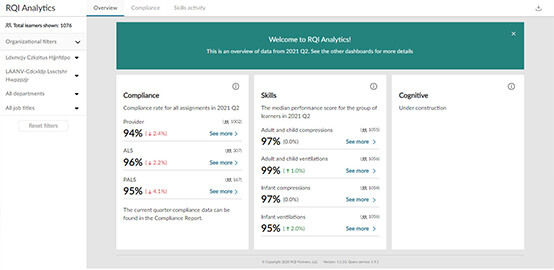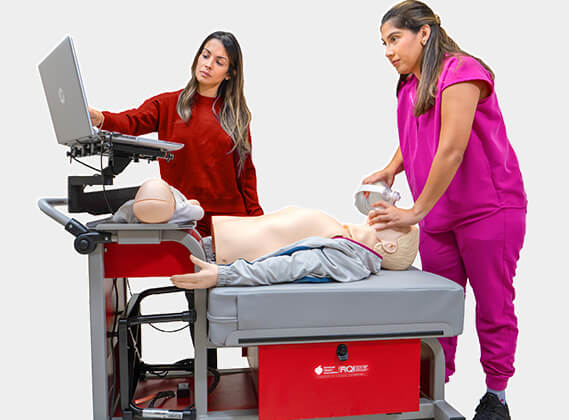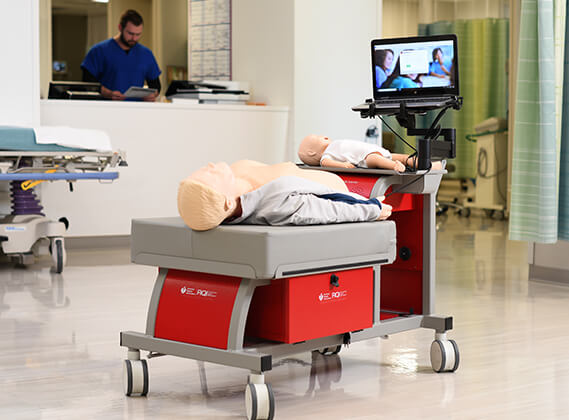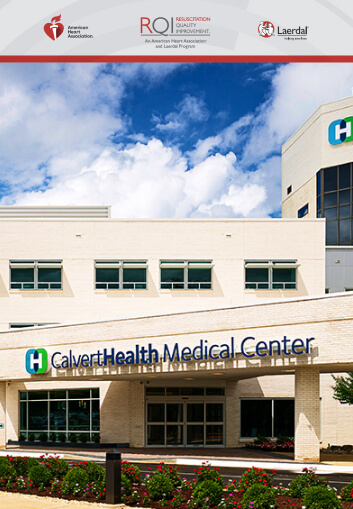Resuscitation Quality Improvement® (RQI®)
Reimagining CPR training with a low-dose, high-frequency digital model.
A unique blend of quarterly cognitive learning and applied skills practice mitigates skills decay and promotes skills mastery and competence. Click below to learn how the RQI program can help your providers and organization cultivate a culture of resuscitation excellence.
Why RQI?
RQI is the only data-driven and evidence-based CPR training program in the world proven to improve CPR quality. The program expands upon the knowledge that providers learn within a traditional two-year CPR training model, but with more frequent skills refresher courses throughout the year. This ensures a high standard of care across your organization, and increased staff confidence and competence to deliver high-quality CPR.
Studies show that the conventional two-year training cycle is not optimal for achieving the mastery learning required for high-quality CPR performance, due to skills decay beginning about three months post-training. The quarterly skills refreshers integrated within the RQI program ensure healthcare professionals are prepared to deliver high-quality CPR to every patient, every time.
With RQI enrollment, your learners can expect:
- Participating in low-dose, high-frequency training with quarterly skills refreshers
- Demonstrating knowledge base via eLearning cognitive assessment activities
- Performing CPR skills on the RQI Simulation Station
- Receiving immediate feedback and performance analysis to improve CPR skills at time of completion
Five Programs. The Same Life-Saving Impact.
The RQI 2025 portfolio includes five programs. Learners receive an eCredential for completion of each program. RQI satisfies requirements for providers and accreditation requirements for hospitals. Programs available include:
- RQI Healthcare Provider
- RQI ALS
- RQI PALS
- RQI for NRP®
- RQI Responder, geared for hospital ancillary and support staff
The Impact of RQI
Why RQI at Salem Health
RQI Pioneers Lead the Charge
Case Studies
Did you know that on average, after one year enrolled in RQI curricula, provider perception of CPR skills retention improved from 17% to 69%* versus another CPR training method? Read how high-quality CPR gave this nurse a second chance.
As CalvertHealth grew, leadership recognized the need for more efficient, comprehensive CPR training for their staff. As a hospital continually recognized for patient safety, CalvertHealth adopted RQI curricula to continue to build upon its legacy and improve the health and well-being of the community.
RQI Analytics
RQI Analytics examines training performance data from all participants enrolled in the RQI program, providing insight to further optimize training efforts across an organization.

The Power of Performance Data
The integrated RQI Analytics application allows administrators to view and analyze aggregate data at the organization, institution, department, job type, or learner levels. Focused on detailed performance of skills, RQI Analytics displays data in a combination of ways including visual models, charts, lists, and through exporting raw data.
RQI Analytics offers visibility to:
- Learner competence
- Learner performance data
- Learner compliance and overdue assignments
- Number of completions over time
- Average attempts and learners with target range
- Detailed compliance trend over time







